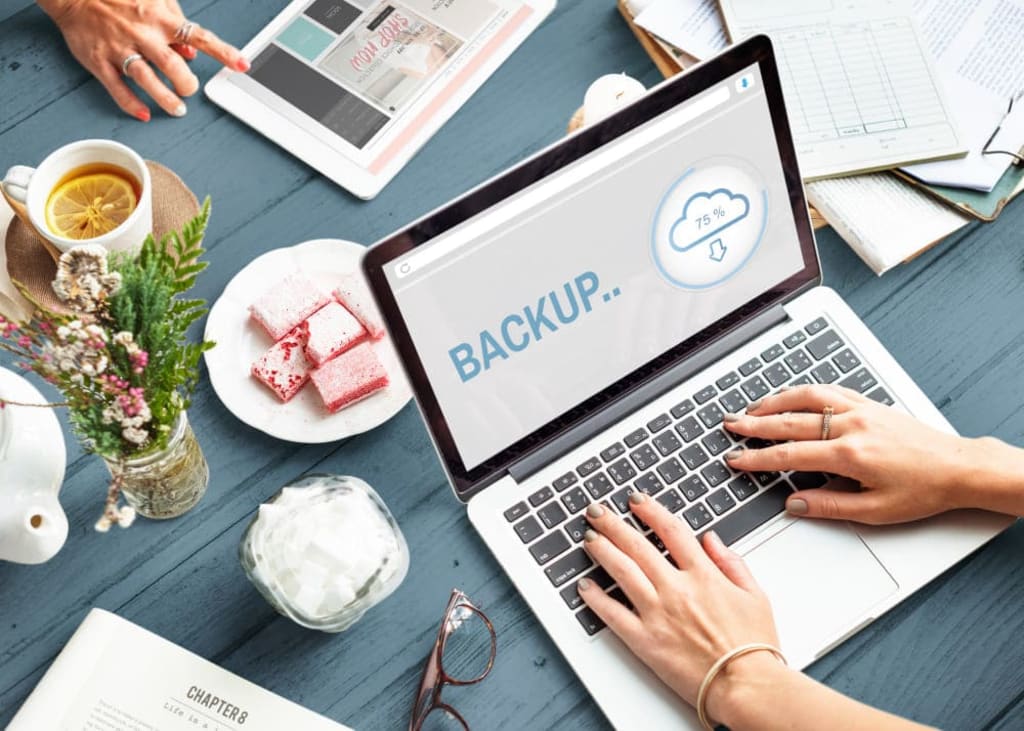Best 8 Data Recovery Tips & Solutions
In today’s article, we will see know Data Recovery Tips & Solutions

It’s not hard to understand how valuable your data is. From personal photos and videos to personal documents, there are many reasons why you should be diligent about backing up your data.
Unfortunately, it can be difficult to protect yourself against data loss without knowing the dangers of it. Personal files, financial records, and important business contacts are just a few types of data that can easily be lost. But if you arm yourself with knowledge about the risks of data loss and follow these 10 tips for prevention, you’ll be able to keep your data safe.
What data can be lost?
Many different types of data can be lost, but here are just a few:
1.- Personal documents such as family photos, videos, and home movies.
2.- Financial records such as bank statements and tax returns.
3.- Important business contacts such as employees and clients.
4.- All data is something. Information is data that has meaning. It can be written on paper, or it can exist in a computer file or database. It can be in a document or text file on your computer or a mobile device. Data can be lost when it is deleted or otherwise removed from its storage location. Data can be lost in many ways.
5.- Data is lost when it is deleted or otherwise removed from its storage location. Data can be lost in many ways. Sometimes the data is physically destroyed, such as when a hard drive is physically destroyed. Sometimes the data is moved to a new location without being copied or duplicated elsewhere, such as when a file is moved from one folder to another on the same hard drive.
6.- You may have heard the saying “a man’s home is his castle.” For many of us, our homes are the most important things in our lives. They provide a place of comfort and security, where we can raise our families and build our futures. They are also where we store our most valuable possessions — our cars, our furniture, our collections of photographs, and other memorabilia.
7.- Data is the lifeblood of a modern organization. It flows through email systems, databases, and file servers, providing direction and guidance to employees, customers, and partners. But like any vital substance, data can be lost or stolen. This has serious consequences.
8.- All of these types of data can be lost because without proper backup or protection. Luckily, there are plenty of precautions you can take to prevent this from happening. Follow the tips below and you’ll be able to keep your data safe!
Preventing Data Loss
Backup
Data loss can happen in many different ways. For example, it’s possible to accidentally delete a file or folder from your computer. In other instances, you might experience a hardware failure that prevents you from accessing files or data stored on a device. Whatever the cause of the data loss, it’s important to be prepared to prevent it from happening in the future.
To protect yourself against data loss, follow these 4 tips:
Back up your devices! One of the best ways to avoid data loss is by backing up your devices regularly. It’s important to back up all of your devices—including those that have been replaced by newer models–to ensure that all your information is saved indefinitely.
Check for software updates! Updates not only keep your devices running smoothly, but also protect against malware and data theft as new vulnerabilities are identified and fixed through patches and updates.
Use strong passwords! Utilizing strong passwords–ones with letters, numbers, and symbols–for all of your accounts will help protect you against identity theft and data loss because it makes guessing difficult for hackers.
Explore external storage options! External storage is an easy way to back up important.
8 Tips to recover data
We all know that backing up your data is important. But the truth is, many of us don’t because it can feel like a hassle. Good News? There are a few simple steps you can take to make sure you’re taking the necessary precautions.
Backing up your data can be a chore, but it’s an important task—and it doesn’t have to be difficult. Implementing these 10 tips will ensure that you are protecting yourself from data loss by following these preventive measures:-
When it comes to data recovery, you want a partner you can trust. When disaster strikes, you want a data recovery partner that you know can help you get to the bottom of it. At Data Rescue, our team has decades of experience in retrieving data from a wide range of scenarios and environments. When you need to recover your data, you need an expert.
Download and install an online document storage service, such as Dropbox or Google Drive. These services allow you to store files in the cloud so that they are always accessible from your phone or computer, no matter where you are.
Make copies of any old files that may need updating for future use and store them on a USB drive or DVD. Whatever you want to happen to your laptop, the files can then be uploaded back to your computer and saved as updated files.
Use disk image software, such as Acronis True Image or Norton Ghost, to back up all the important drives on your computer system (including external drives).
When data gets corrupted, it’s hard to know where to start when trying to recover your data. The first step is to find a data recovery professional who can minimize the damage and get your data back on track. At Crawl Ontrack, we’ve been helping businesses and individuals recover from data loss for over 30 years. Our data recovery services are designed to get your data back up and running as quickly as possible and to minimize the impact of data loss on your business.
Data recovery is a complicated, expensive, and often frustrating process. The simple act of deleting a file can fragment data and spread across your hard drive. When this happens, the data becomes unreadable, which makes data recovery using traditional methods impossible.
Recovery is the process of restoring data that has been lost, deleted, or overwritten. To recover data on your own, you can use data recovery software to find and restore lost data. However, if you need professional help, you should contact a data recovery service.
When your computer won’t boot up, it can be a nightmare trying to figure out how to recover your data. Your first instinct may be to call in a professional, but this can be costly. Instead, try these tips to recover your data on your own.
Conclusion
When it comes to the value of data, there is no price tag. But, when you put in the time and effort to protect your data, you will be able to avoid the risks mentioned in the blog above along with data loss.
Don’t share too much personal information online (this can make it easier for others to steal your identity). Ask for copies of important records from companies like banks and credit card companies (you can store those records offsite).






Comments
There are no comments for this story
Be the first to respond and start the conversation.